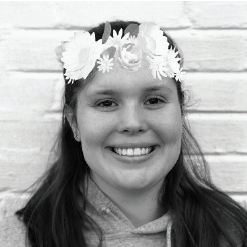PRO/CON: Should social media companies continue offering face filters?
The arguments for and against face filters
PRO
They are engaging and fun, and are hardly the root of unrealistic beauty standards.
Try to imagine what social media would look like with no filters. Instagram would lose the Starburst filter that decorates selfies with colorful lines. Snapchat wouldn’t have the filter that puts your face on a dancing hot dog or on a piece of broccoli.
Without filters, social media would be much less vibrant. They boost the entertainment value of social media and help social media users post pictures that they feel more confident in. Even though some of them make you more conventionally attractive, they are not the cause of society holding those values—and therefore, face filters should not be banned.
Filters make social media more interesting and engaging. Many students, like senior Certitude Lembion, think that social media would not be the same without them. “I don’t think they should necessarily be banned because they are part of the fun of social media,” Lembion said. “If they are banned, then it will make social media a lot less fun for people who just use it as a part of entertainment and enjoyment.”
Face filters often make very subtle changes to one’s appearance, whether it's slightly lightening their skin, drawing out their lashes, or slimming down their nose. Many are concerned about the mental health effects of comparing oneself to an even slightly filtered picture as it may enforce unrealistic beauty standards. In response to these claims, however, many social media companies have recently added a new feature that indicates whether or not someone is using a filter, which makes it much harder for people to compare themselves to the people in edited photos.
Lembion continued, “[We should be] saying that it’s ok to use filters as long as you disclose it and you make sure that those who look up to you know that this isn’t real life; it’s just for social media.” Even though pictures are being edited, we should be more transparent about when filters are being used instead of banning them outright.
It is unfair to place all of the blame for unfair beauty standards on filters. In the cosmetics and fashion industries, in Hollywood, and in magazine and television advertisements, there is constant pressure to look a certain way: skinny, tan, clear skin, white teeth, big lips, and a small nose. These establishments use heavily edited pictures to advertise their products and profit off of the insecurities that they themselves hammer into consumers.
Junior Gelila Isayas agrees that filters are not the main culprit. “If you aren’t content with how you look regarding your face, the blame should not be completely towards filters,” Isayas said. “Nowadays, there’s skin care and makeup for those who wish to enhance or fix their features.” While these unattainable beauty standards should not exist, filters are only a part of this system, and they are not the cause of these insecurities. Removing them won’t fix anything.
More often, people use filters as a convenient method to hide everyday blemishes. If someone wants to hide their eye bags one morning, they have the option to use a filter and take a quick selfie without having to worry about how they look. Without filters, people would turn towards makeup. Filters, at least, would save time.
“I think banning filters isn’t really the right thing to do,” Lembion said. “Instead we should be educating people and making sure that they know that what’s on social media isn’t exactly real.”
Filters should be an option for the people who want them. While filters on social media are far from perfect, they are not the root of the problem. If filters are reworked and regulated to be more inclusive for all people, they would not contribute to unfair beauty standards. Banning them, however, is not the solution.
Considering the current world atmosphere, many people would welcome any excuse for a harmless distraction with open arms. If filters can offer them even just a couple seconds of amusement, then why would we take that away from them? Everyone can use a bit of fun and positivity in their lives.
CON
They have negative impacts on mental health and discriminate against people of color.
Online class is exhausting. As soon as it ends, all I want to do is scroll through TikTok and watch kids dancing to songs and having fun. I think they look great, but I don’t see past the filters that hide the smallest hint of a pimple, that make their eyes just that much bigger, their cheeks just that much thinner. “Wow,” I think, “They look so much prettier than I do.”
I’m not alone—over 1 billion people have downloaded TikTok. When we use the in-app camera to film a short video, a featured “beauty filter” button can be tempting. It makes such tiny changes that the effects are hardly noticeable until you turn it off—but those small tweaks can sink deep into people’s minds, rooting themselves and creating tangible harm. Social media companies should stop offering filters that change the ways our faces look to protect our mental well-being.
These face-altering filters can lead to serious mental health problems such as low self-esteem. A 2015 study from the International Journal of Eating Disorders found that girls who manipulated photos before sharing them onto social media were significantly more likely to have body image or eating issues. Granted, this study included outside editing as well as filters, but filters are the most convenient route. External editing requires navigating between multiple apps, learning new software, returning to your social media app, and posting. For most people, this is too much effort to put into a single post—making filters the predominant culprit.
Early this year, an analysis from the American Academy of Facial Plastic and Reconstructive Surgery (AAFPRS) found that the number of plastic surgeries rose by 6 percent between 2018 and 2019. Seventy-two percent of surgeons and practitioners affiliated with AAFPRS reported that they saw patients who wanted procedures in order to look better for selfies. Even if filters were not the direct cause of this statistic, they have contributed to today’s selfie culture.
Filters don’t cause body dysmorphia, but they are known to worsen it. Body dysmorphic disorder (BDD), more commonly known as body dysmorphia, is a mental illness related to obsessive-compulsive disorder (OCD). People with BDD hate a part or parts of their bodies. They develop a conviction that they are hideous and that everyone around them thinks so too. Filters can affirm this misconception.
Stephanie Woodrow, an OCD specialist, says that looking at filtered pictures of ourselves for too long can be damaging. “Our perception of what’s real is being completely altered,” she explained. “If we’re not receiving the message of what’s actually real, then we’re looking at ourselves in the mirror without filters, and we’re seeing nothing but flaws.”
For people with body dysmorphia, the thought that they have to change can be so intense that they can lose a sense of what they actually look like. Filters can cause that perception of reality to break down even further.
“You see that filtered version of yourself, and you try your hardest to attain it, but realistically, you can’t,” senior Maya Guise said.
Of course, every person who has body dysmorphia has a different experience, and some might not be affected by filters. But for others, filtered faces can become all-consuming and harmful. Social media companies need to realize this and stop offering filters.
So-called “beauty” filters do a few things reliably—they lighten your skin, make your eyes bigger, and make your face thinner. When filters labeled “beauty” change all features into those associated with white people, it can send a message to people of color that they aren’t pretty enough. Guise noted, “A lot of these filters are very eurocentric. They make your nose smaller; they make your skin lighter.”
Sophomore Bella Graham agrees. “They create an idea that everyone has to be perfect and look a certain type of way,” Graham said. That “certain type of way?” White. Social media should be a place where everyone can feel beautiful, regardless of whether their features happen to match the white ideal. Unfortunately, this is not always the reality.
While some filters openly change how your face looks, some hide their shifting of facial features until the damage is done. While it might seem like someone is just having fun, seemingly inconspicuous filters could be changing a user’s face while they are distracted by the adorable animal or funny joke on top. For example, a filter that puts cute dog ears on your smiling visage might simultaneously ensure that your face stays slim. Even though we know that dogs aren’t the new beauty standard, the tweaks that are made underneath the graphics can still influence our subconscious.
Face filters exacerbate body dysmorphia and perpetuate unrealistic beauty standards. Therefore, social media companies must stop offering them.
Show comments
Comments
No comments.
Please ensure that all comments are mature and responsible; they will go through moderation.

